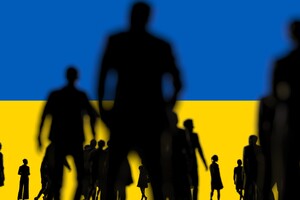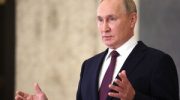Regardless of age and place of residence, the majority identify themselves primarily as citizens of Ukraine.

Among the population of Ukraine, 85% consider themselves primarily all citizens of their country. At the same time, among different social categories of the population – age, regional, linguistic and ethnic, gender and settlement – there is no great difference in this indicator. Such sociological survey data was published by the Kyiv International Institute of Sociology.
To the question “Who do you consider yourself to be first of all?”, which related to identity in territorial and political contexts, almost 85% of respondents chose the answer option “Citizen of Ukraine” .
Also, among residents of the east, 81% consider themselves primarily citizens of Ukraine, among Russian-speaking Ukrainians – 81%, among Russian-speaking Russians – 78%.
A little more than 6% consider themselves a resident of their locality or region. Almost 4% called themselves a citizen of the world or Europe. About 3% consider themselves a representative of an ethnic group or a nation. A little less than 1% of respondents consider themselves citizens of the former Soviet Union. So, with few exceptions, the population of Ukraine considers themselves first of all citizens of their country.
A similar picture persists in various socio-demographic groups. Respondents between the ages of 18 and 29 (81.7%), as well as respondents aged 70 and over (78.1%) deviate the most from the average indicator. At the same time, the youngest group has more people who identify themselves by ethnicity or city of residence.
As for regional differences, in the east of the country, the indicator of civic identity decreases to 80.7%, instead, there are more people who identify themselves as residents of their locality or region.
In in the context of ethnicity and the language used by the interviewees, 88% of Russian-speaking Ukrainians and 78% of Russian-speaking Russians chose civic identity. At the same time, respondents who used different variants of a mixture of Ukrainian and Russian during communication practically did not differ in their answers from respondents who used exclusively Ukrainian.
In other demographic groups – by gender and type of settlement – deviations from the general picture are even less noticeable.
Based on data from the Institute of Sociology of the National Academy of Sciences of Ukraine, sociologists indicate that since 1992, civic identity of Ukrainians increased almost twice – from 45.6% to 84.6%, thereby marginalizing all other types of identity in the territorial and political context.
Read also: In Support for the actions of Zelenskyi and the authorities has decreased in Ukraine – survey
Related video
The survey was conducted by the Kyiv International Institute of Sociology during July 6-20, 2022 by the method of telephone interviews using a computer among 2,000 respondents who live in all regions of Ukraine (except the Autonomous Republic of Crimea). Formally, under normal circumstances, the statistical error of such a sample did not exceed 2.4% for indicators close to 50%, 2.1% for indicators close to 25%, 1.5% for indicators close to 10%, 1.1 % – for figures close to 5%.


